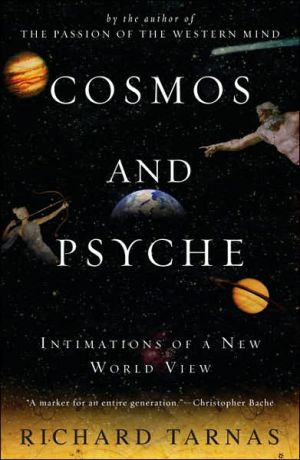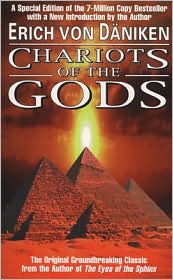Cosmos and Psyche: Intimations of a New World View
From a philosopher whose magisterial history of Western thought was praised by Joseph Campbell and Huston Smith comes a brilliant new book that traces the connection between cosmic cycles and archetypal patterns of human experience. Drawing on years of research and on thinkers from Plato to Jung, Richard Tarnas explores the planetary correlations of epochal events like the French Revolution, the two world wars, and September 11. Whether read as astrology updated for the quantum age or as a...
Search in google:
From a philosopher whose magisterial history of Western thought was praised by Joseph Campbell and Huston Smith comes a brilliant new book that traces the connection between cosmic cycles and archetypal patterns of human experience. Drawing on years of research and on thinkers from Plato to Jung, Richard Tarnas explores the planetary correlations of epochal events like the French Revolution, the two world wars, and September 11. Whether read as astrology updated for the quantum age or as a contemporary classic of spirituality, Cosmos and Psyche is a work of immense sophistication, deep learning, and lasting importance. Publishers Weekly According to Tarnas, acclaimed author of The Passion of the Western Mind, history is on the verge of a major shift, comparable to the one wrought by Copernicus and Galileo, but a seemingly antiscientific one: an astrological turn that can only be understood thorough chronicling planetary alignments as they correlate to the rise of the modern mind over the last 500 years. Understanding planetary alignments, for Tarnas, is crucial to the world's future and requires "a genuine dialogue" with the cosmos, by "opening ourselves more fully" to "the other," to ancient and indigenous epistemologies, even "to other forms of life, other modes of the universe's self-disclosure." Filled with philosophical, religious, literary and scientific thinking ranging from Luther and Kepler through Hemingway and even Hitchcock and Dylan, Tarnas's book is not only sweeping in subject but dense and sometimes painfully slow going. It requires at once a strong background in the history of modern thought, an advanced knowledge of astrology, a willingness to withhold skepticism about the role of planetary alignments of the past in understanding life today and the avoidance of imminent world catastrophe. Tarnas's call to redefine what we consider as "legitimate knowledge" will resonate in some sectors, but it will be a tough sell with the more scientifically hardheaded. (Jan. 23) Copyright 2005 Reed Business Information.
Preface xiiiThe Transformation of the Cosmos 1The Birth of the Modern Self 3The Dawn of a New Universe 5Two Paradigms of History 11Forging the Self, Disenchanting the World 16The Cosmological Situation Today 26In Search of a Deeper Order 37Two Suitors: A Parable 39The Interior Quest 43Synchronicity and Its Implications 50The Archetypal Cosmos 61Through the Archetypal Telescope 71The Evolving Tradition 73Archetypal Principles 80The Planets 88Forms of Correspondence 102Personal Transit Cycles 109Archetypal Coherence and Concrete Diversity 126Assessing Patterns of Correlation 135Epochs of Revolution 139From the French Revolution to the 1960s 141Synchronic and Diachronic Patterns in History 149Scientific and Technological Revolutions 159Awakenings of the Dionysian 166The Liberation of Nature 172Religious Rebellion and Erotic Emancipation 183Filling in the Cyclical Sequence 188The Individual and the Collective 194A Larger View of the Sixties 202Cycles of Crisis and Contraction 207World Wars, Cold War, and September 11 209Historical Contrasts and Tensions 219Conservative Empowerment 226Splitting, Evil, and Terror 234Moby Dick and Nature's Depths 239Historical Determinism, Realpolitik, and Apocalypse 242Moral Courage, Facing the Shadow, and the Tension of Opposites 257Paradigmatic Works of Art 268Forging Deep Structures 285Cycles of Creativity and Expansion 289Opening New Horizons 291Convergences of Scientific Breakthroughs 296Social and Political Rebellions and Awakenings 300Quantum Leaps and Peak Experiences 307From Copernicus to Darwin 312Music and Literature 317Iconic Moments and Cultural Milestones 326Great Heights and Shadows 335Hidden Births 349Awakenings of Spirit and Soul 353Epochal Shifts of Cultural Vision 355Spiritual Epiphanies and the Emergence of New Religions 366Utopian Social Visions 375Romanticism, Imaginative Genius, and Cosmic Epiphany 380Revelations of the Numinous 401The Great Awakening of the Axial Age 409The Late Twentieth Century and the Turn of the Millennium 419Towards a New Heaven and a New Earth 453Understanding the Past, Creating the Future 455Observations on Future Planetary Alignments 465Opening to the Cosmos 484Sources of the World Order 488Epilogue 491Notes 494Sources 535Acknowledgments 545Index 549
\ From Barnes & NobleThirty years in the making, Richard Tarnas's Cosmos and Psyche defies easy categorization. In this major work, Tarnas, a Harvard-educated historian and professor of philosophy and psychology, proposes a consistent correspondence between planetary cycles and the unfolding of history. With fascinating evidence that would brighten the day of any cosmologist, he argues that our present era is most comparable to the tumultuous, creative epoch of the High Renaissance.\ \ \ \ \ Publishers WeeklyAccording to Tarnas, acclaimed author of The Passion of the Western Mind, history is on the verge of a major shift, comparable to the one wrought by Copernicus and Galileo, but a seemingly antiscientific one: an astrological turn that can only be understood thorough chronicling planetary alignments as they correlate to the rise of the modern mind over the last 500 years. Understanding planetary alignments, for Tarnas, is crucial to the world's future and requires "a genuine dialogue" with the cosmos, by "opening ourselves more fully" to "the other," to ancient and indigenous epistemologies, even "to other forms of life, other modes of the universe's self-disclosure." Filled with philosophical, religious, literary and scientific thinking ranging from Luther and Kepler through Hemingway and even Hitchcock and Dylan, Tarnas's book is not only sweeping in subject but dense and sometimes painfully slow going. It requires at once a strong background in the history of modern thought, an advanced knowledge of astrology, a willingness to withhold skepticism about the role of planetary alignments of the past in understanding life today and the avoidance of imminent world catastrophe. Tarnas's call to redefine what we consider as "legitimate knowledge" will resonate in some sectors, but it will be a tough sell with the more scientifically hardheaded. (Jan. 23) Copyright 2005 Reed Business Information.\ \ \ Library JournalIn this sequel to The Passion of the Western Mind, Tarnas (philosophy, cosmology, & consciousness, California Inst. of Integral Studies) opens with an overview of the "modern self," paying special attention to the impact of the Copernican revolution. He then begins a discussion of the psychological aspects of this modern self, building up to Carl Jung's analysis of the phenomenon of synchronicity. This discussion serves as the springboard for the rest of the book: cosmological archetypes and the principles of astrology. Tarnas cites an abundance of examples drawn from historical individuals, cultural eras, political events and revolutions, scientific discoveries, literary developments, and artistic innovations that correspond to various planetary alignments. He persuasively argues that a logical shift on the order of the Copernican revolution is necessary in order for modern individuals to analyze better the past and present (and to some extent the future). At times, however, the material seems to do little more than summarize planetary alignments and corresponding events. If nothing else, Tarnas succeeds in pointing out overwhelming coincidences that will undoubtedly be difficult for readers to disregard. Recommended for medium and large collections.-Jason Moore, Madison Cty. Lib. Syst., MS Copyright 2006 Reed Business Information.\ \








